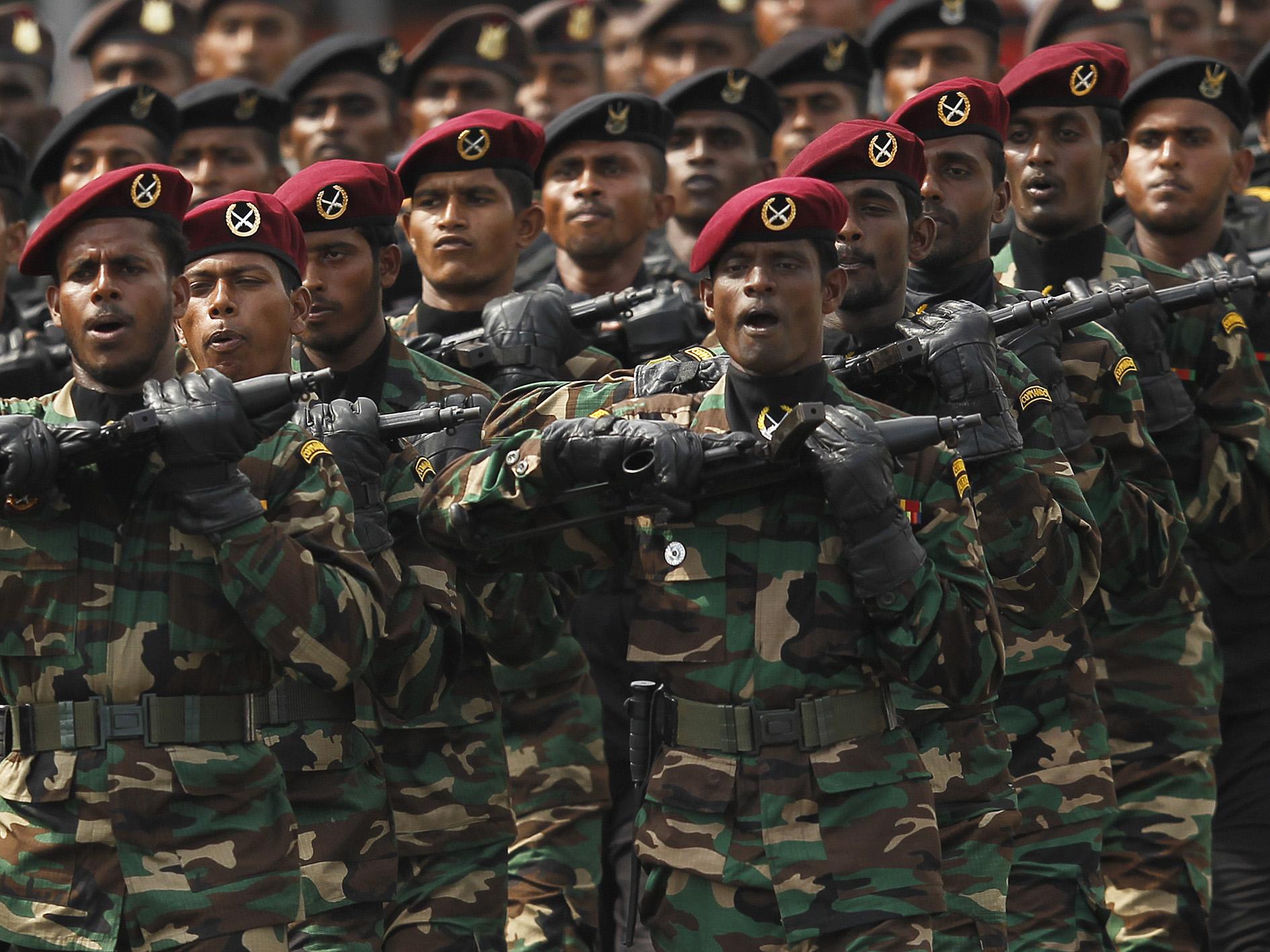Sri Lankan men come forward to report rapes, abductions and torture carried out during bloody civil war
More than 50 cast aside anonymity to tell of historic crimes committed against them during brutal conflict that ended in 2009

He was barely a teenager when Sri Lanka's civil war ended, spared by youth from witnessing its horrors.
But last year, the brutal conflict caught up with Witness #205.
Raped, branded and beaten, he is one of more than 50 men who say they were abducted and tortured under Sri Lanka's current government. The men's previously unpublished accounts conjure images of the bloody civil war that ended in 2009.
The men agreed to tell their stories to the Associated Press and to have the extensive scars on their legs, chests and backs photographed in July and August. The AP reviewed 30 medical and psychological evaluations and conducted interviews with 20 men. The strangers said they were accused of trying to revive the Tamil Tiger rebel group and tortured between early 2016 to as recently as July of this year.
Sri Lankan authorities deny the allegations.
“The army was not involved — and as for that matter — I'm sure that police also were not involved,” Sri Lanka army commander Lieutentn General Mahesh Senanayake told the AP in an interview last week in Sri Lanka. “There's no reason for us to do that now.”
The Sri Lankan government minister in charge of the police agreed to an interview with the AP last month but did not follow through.
Sri Lanka's current government was elected in 2015. Many had hoped the new leadership would bring long promised reforms.
Piers Pigou, a South African human rights investigator, said he has not seen torture of this scale in his 40-year career.
“The levels of sexual abuse being perpetuated in Sri Lanka by authorities are the most egregious and perverted that I've ever seen.”
Sri Lanka has so far failed to investigate war crimes allegations stemming from its 26-year civil war. At the end of August, human rights groups in South America filed lawsuits against Sri Lanka's ambassador to Brazil, a former general accused of overseeing military units that attacked hospitals and tortured thousands at the end of the war. Upon his return, Sri Lanka President Maithripala Sirisena said neither the former general nor other “war heroes” would be touched — a pledge that drew criticism from human rights groups.
Nevertheless, Sri Lanka's international profile is on the rise. In May, the European Union restored the special trade status that Sri Lanka lost in 2010 after the European Commission found that the country had failed to implement key international conventions. The country also participates in UN peacekeeping missions. Recently, the Indian Ocean nation was asked to sit on a UN leadership committee trying to combat sexual abuse. An AP investigation earlier this year found that 134 Sri Lankan peacekeepers participated in a child sex ring in Haiti that persisted for three years. No one was ever prosecuted.
Zeid Ra'ad al-Hussein, a top UN diplomat who has pushed for accountability in Sri Lanka, was aghast at the AP's accounts of the 50 men.
“While the UN is unable to confirm this until we mount an investigation, clearly the reports are horrifying and merit a much closer inspection from our part, especially if they occurred in 2016 and 2017,” said Zeid, the UN high commissioner for human rights.
Sri Lanka's representative in London, Amari Wijewardene, declined interview requests.
The International Truth and Justice Project, an advocacy group administered by the Foundation for Human Rights, has gathered testimony from more than 60 Sri Lankans across Europe — 52 of whom were part of the AP's investigation. The group has been lobbying governments and international organisations to get justice for victims.
Most of the men say they were sexually abused or raped, sometimes with sticks wrapped in barbed wire. Homosexuality is illegal in Sri Lanka and rape carries a significant social stigma.
Witness #205 said he was held for 21 days in a small room where he was raped 12 times, burned with cigarettes, beaten with iron rods and hung upside- down. Another man described being abducted from home by five men, driven to a prison, and taken to a “torture room” equipped with ropes, iron rods, a bench and buckets of water. Blood stained the walls.
A third said prisoners had grown accustomed to the sound of screaming. “It made us really scared the first day but then we got used to it because we heard screaming all the time.”
Despite the shame of the sexual abuse, the men said they felt obligated to tell their stories.
“The war against Tamils hasn't stopped,” a 22-year-old known as Witness #205 told the AP during an interview in July.
Unlike some of the victims, Witness #249 admits to being a member of the Tigers in the final stages of the war. He walks with a limp from a piece of shrapnel still lodged in his left leg.
Last year, he married his high school sweetheart but soon after his wedding, he was snatched off the streets, arriving at a torture room hours later.
His father eventually bribed the security officers to free his son who fled to England.
Tamils say the government continues to target them as a part of a larger plan to destroy their culture.
The asylum seekers in Europe now await decisions. Some are terrified of being sent back
Many of the victims meet each week at a London church for English classes and counselling sessions.
“The human race wouldn't have survived if we couldn't survive trauma,” said Caroline Roemmele who supervises some of the men's counselling. “But it's not an easy road.”
AP
Join our commenting forum
Join thought-provoking conversations, follow other Independent readers and see their replies
Comments